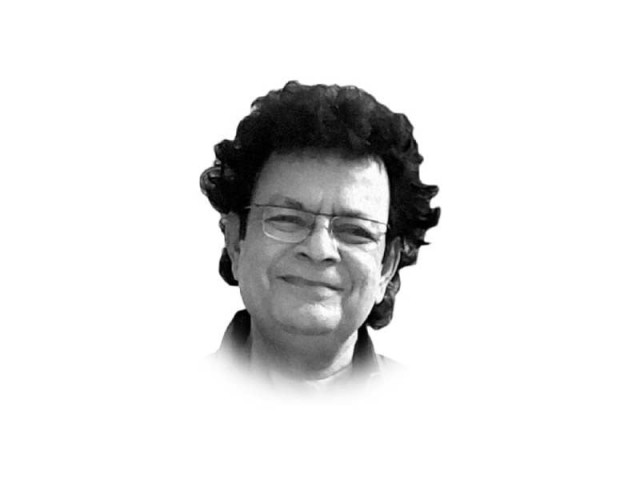Why are we such laggards?
All of us spend our lives in accumulation of wealth and attainment of positions

All of us spend our lives in accumulation of wealth and attainment of positions. For gathering thereof, we tell lies and deceive others. If our misleading initiatives do not work at times, we make do with flattery. And thus begins our march to self-enrichment. It would be good if we figure out the reality of things that propel us toward the madness of possession. But before doing that, we should go back to the prominent personalities of the past so that we might learn what they held in their hearts about the worldly positions they once held, and were prepared to do anything for their attainment. I am confident that a candid glance at them would help us discern how wrong they were in their efforts for status and positions, which despite apparent success are missing in their twilight years.
Bill Clinton, the twice-elected American president, was famous for his sexual exploits during his terms, described his position futile in comparison with its cost: “I am ready to swap my presidentship if I am transformed into a young man of 30 years.”
Also, Arab history is replete with events that are enough to teach us the futility of worldly offices and designations. One such famous dialogue transpired between Fuzail bin Ayaz and Abbasid Caliph Haroon ur Rasheed, which portrays the character of a truthful sage who declined to accept the gift of golden nuggets from the Caliph while raising a question: “What the Caliph could give for a few drops of water if he is near to death because of thirst in the desert?
Haroon ur Rasheed spontaneously replied: “Half of my empire.”
The sage then asked: “If those drops of water create unrest inside you and do not turn into urine, then what could you give for it.”
“My remaining empire,” the Caliph summed said. Upon this Fuzail smiled and intoned: “What could you give me from your realm, whose worth is not more than a few drops of water?
Also, one of the greatest historians of the Arab world, Al-Suyuti, while discussing the artifice and treachery of rulers, wrote: “When Ibn Abi Mahali seized Morroco, a group of his old friends came over to congratulate him, as the rest were praising the conqueror profusely. However, one of them was silent and unconcerned. Upon this, Ibn Abi got curious and asked him: “Brother what is the matter, why are you saying nothing?”
“Shelter of the world! You are a king, I can speak only after you grant me my life,” he said.
“Granted! Speak as you like,” Ibn Abi pressed.
The reticent friend said: “Like in a contest, a dozen or more players run after a ball to snatch it from one another while immersing deeper into their chase of the ball, they are afraid of possible harm to their bodies. Nevertheless, the outcome of the fray is nothing but fatigue, and in the end, the players, who seemed to have forgotten everything in their snatching and keeping the ball were dismayed to see that the ball was made of torn pieces of rags and leather.”
When Ibn Abi heard the allegory, he understood the underlying lesson forthwith and with teary eyes, he exclaimed: “We set out for good reasons, but lose our way in the labyrinth of the world.”
It is a fact that the Arab scholars and philosophers of the medieval period had a deeper sense of the sufferings of humanity. Therefore, they brought about advanced ideas and approaches for their relief, enabling their rulers to go for expansion in unfamiliar lands. As a result of their equitable dispensation, soon the walls of alienation disappeared and strangers became their own. Actually, whatever they did was for the well-being of human beings not for their rulers. If such thinkers were alive today, they must have exclaimed: our life for the welfare of people has not gone in vain. But it is unfortunate why the following generations of those advanced spirits could not keep kindling the flame of knowledge and well-being of all, their forebear had initiated. Perhaps the onus of this lies on the shoulders of Muslim rulers and scholars if they mean business in the fast-changing world.
Published in The Express Tribune, March 14th, 2023.
Like Opinion & Editorial on Facebook, follow @ETOpEd on Twitter to receive all updates on all our daily pieces.
















COMMENTS
Comments are moderated and generally will be posted if they are on-topic and not abusive.
For more information, please see our Comments FAQ